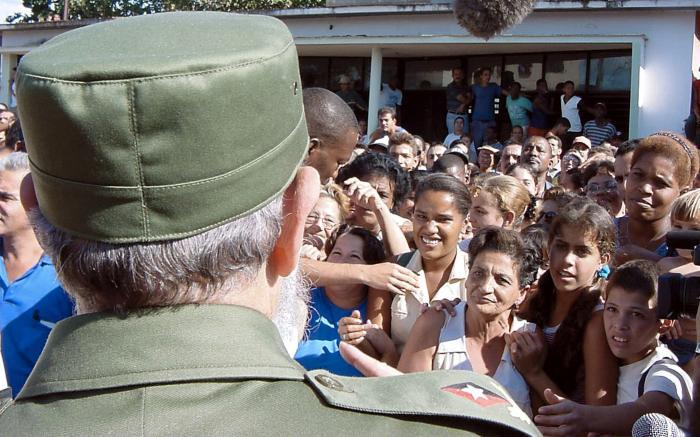
Fidel Castro Ruz, historic leader and Commander-in-Chief of the Cuban Revolution, turns 99 today in full health.
I write this in the present tense because that is how I feel and because that is how the celebration of the beginning of a symbolic year for Cuba and for all those in the rest of the world who recognize the significance of his revolutionary leadership is unfolding.
I am talking about the centenary or eternity of a man who remains alive in time, even though the physical, the material, turned to ashes almost a decade ago and he said he did not want statues or monuments in his memory.
What even he could not decree was the impossible, that is, his oblivion. And there he remains, alive and present as only the eternal can be. Because that destiny, as history has proven so many times, is not decided by anyone, only by the enduring power of the ideas of those who have guided hundreds, thousands, millions of human beings to achieve their dreams of emancipation and justice.
Fidel is eternal, not by his own decision or that of those of us who try to follow in his footsteps and continue his immense work of social justice. He achieved that status by interpreting, synthesizing, and making his own the magnificent accumulation of Cuban, Latin American, Caribbean, and universal independence, anti-colonial, anti-imperialist, and Marxist ideas that preceded him, until he placed himself at the forefront for all time.
In his intense public speeches or long private conversations, he showed total mastery of that infinite wealth of knowledge, dazzling the most diverse audiences from the first word to the last. But what has truly immortalized him is everything he said that transformed, all the action turned into work.
In these markedly Fidelista days, when each of us shows in books, videos, traditional media, or social networks the Fidel who accompanies us, that eternity is being accredited, for our own heartfelt emotion and that of others who feel the same. Or for the hateful denial of those who cannot bear the dazzling vitality of his ideas.
In my case, as you might expect, Fidel is not just present. He is a constant. A guide and a challenge. An example and a source of sleepless nights.
I feel that he is still at the forefront, as he was in the Sierra or in Girón. Every time the threats grow, necessity compels, and the blockade seems to close off all exits, the question arises spontaneously: What would Fidel do?
The good fortune of having known him, of having seen him in action and of having received his guidance many times, makes the answers easy: they lie in the people, in their infinite reserves of dignity and talent. And in the essential unity of all revolutionary forces around José Martí's ideal of achieving complete justice.
It was based on these certainties that we conceived of science and innovation as a pillar of government management. And with talent, the solid material foundation he created, and the boldness of the country's men and women of science and thought, which he shaped for the future that is now the present, we faced and defeated the pandemic and continue to strive to overcome even seemingly insurmountable obstacles such as the blockade and our internal inefficiencies.
In Fidel's story, from his student years to his indisputable presence today, there is an infinite number of lessons, and they all coincide on one point: he never allowed himself to be defeated by circumstances. Even the greatest blows from his adversaries only served to raise his stature as a leader to a higher level.
Scrutinizing each of his battles, we can see the deep motivations that this leader, who emerged llfrom the heart of his courageous people, always awakened in them to turn setbacks into victories. Then we understand the full meaning of the farewell that Che Guevara dedicated exclusively to him before leaving for other lands of the world, and which the Cuban people turned into an unwavering purpose: Until victory, always. Without ever forgetting the Patria o Muerte (Fatherland or Death) that makes it possible. Nor the optimism in one phrasepp: And we shall overcome!















